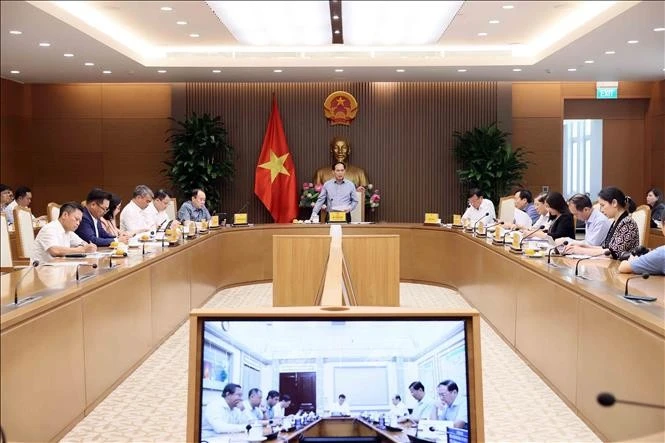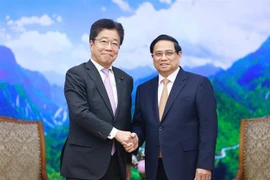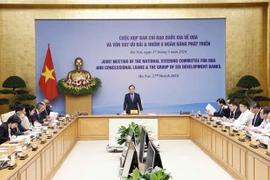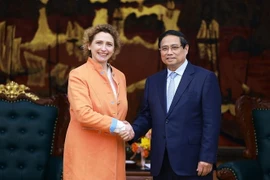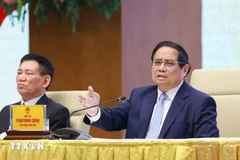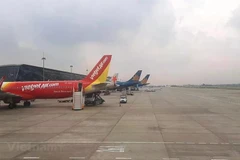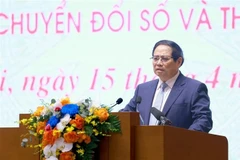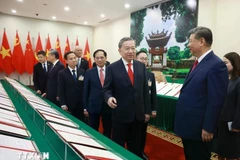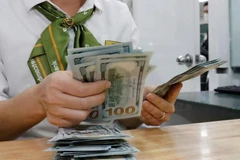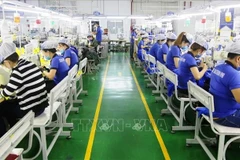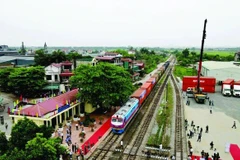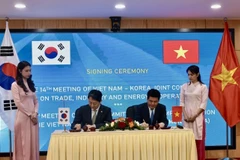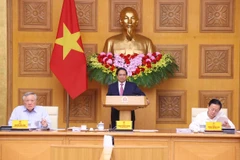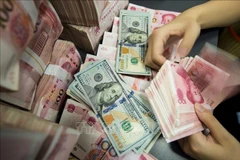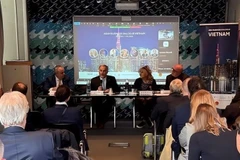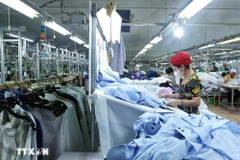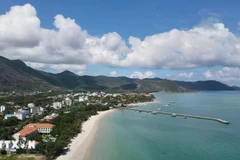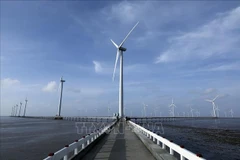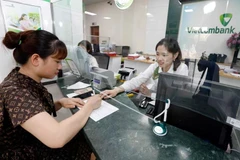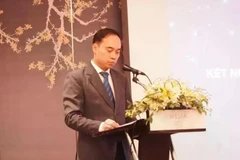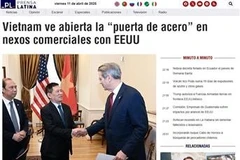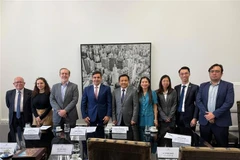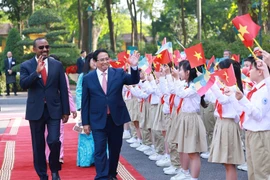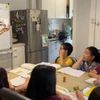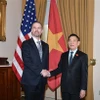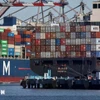Hanoi (VNA) - Deputy Prime Minister Bui Thanh Son has underscored the need to improve processes, streamline procedures, and capitalise on financial resources to support national development.
Son, who is also head of the national steering committee for ODA and concessional loans, made the remark while chairing a meeting of the committee on April 13, saying key priority is to accelerate the of projects and ensure the effective use of capital.
Enhancing effectiveness of capital utilisation
According to the Deputy PM, accelerating the disbursement of public investment capital, including ODA and concessional loans, is crucial for unlocking development resources. In order to sustain high economic growth in the coming years, effective use of ODA is essential, he noted.
However, ODA disbursement remains sluggish. Between 2021 and 2024, the annual average disbursement rate was just 52%. In the first four months of 2025, the rate was only 4.6%, significantly lower than the national average disbursement rate for public investment of approximately 8% during the first quarter. The Government’s task forces, assigned to inspect and expedite public investment disbursement across ministries, sectors, and localities, have identified numerous shortcomings in the management and implementation of ODA and concessional loan-funded projects, largely due to subjective causes.
While recognising that domestic resources are strategic and fundamental, the Deputy PM stressed the vital role of mobilising external resources, especially in sectors where Vietnam lacks technological capacity. He noted that ODA has played an important role in supporting Vietnam’s development, including helping the country achieve several United Nations Sustainable Development Goals (SDGs) ahead of schedule.
He affirmed that going forward, Vietnam will focus on projects with substantial ODA funding, high concessionality, short implementation periods, and reduced administrative procedures, especially in infrastructure (railways, aviation) and climate change adaptation. He also called for the preparation of several key projects to initiate direct engagement with international partners.
Son requested the Ministry of Finance to incorporate feedback, review and update reports in preparation for a meeting with foreign donors in early May. He instructed the ministry to coordinate with relevant agencies to submit a proposal to the Prime Minister to consolidate the steering committee by April 18.
The ministry was also tasked with finalising legal documents to address institutional bottlenecks, including drafting a new decree to replace the existing ones on ODA and concessional loan management, to be submitted to the Government by April 30 under fast-track procedures.
The Ministry of Finance was also assigned to take the lead in proposing amendments to relevant laws, such as the Law on Public Investment, the Law on State Budget, and the Law on Public Debt Management. These proposed changes must be detailed and designed to resolve difficulties in existing projects.
Meanwhile, the Ministry of Foreign Affairs was directed to review current procedural obstacles and propose amendments to several articles of the Law on International Treaties, aiming to simplify procedures, particularly in the signing of international agreements related to ODA and concessional loans.
Slow disbursement due to multiple obstacles and inconsistencies
Deputy Minister of Finance Tran Quoc Phuong reported that the total amount of ODA and concessional loans committed for the 2021–2024 period was roughly 3.32 billion USD. In 2025, the Ministry of Finance has actively pursued new loan negotiations and agreements. In the first four months alone, negotiations were completed for five projects worth a total of 413.84 million USD, and three framework agreements with Germany, Austria, and Spain for the 2025–2030 period were signed.
To date, consensus has been reached with development partners to sign loan agreements for 23 projects and one budget support loan from the Government of Japan, with a total projected value of approximately 1.47 billion USD for 2025.
Regarding disbursement, Phuong said between 2021 and 2024, 64.33 trillion VND out of 131 trillion VND of planned capital was disbursed (excluding Ministry of National Defence data). By the end of March, foreign capital disbursement stood at 294 billion VND, or 1.26% of the annual plan. As of April 30, it is estimated to reach 1.07 trillion VND, equivalent to 4.6% of the annual target, not including rolled-over capital from the previous year.
The Deputy Minister outlined several challenges, including legal inconsistencies; discrepancies between Vietnamese regulations and donor procedures; and overlapping and lengthy negotiation processes, especially due to provisions in the Law on International Treaties. Other issues include asset collateral requirements for public non-business units and lending limits for individual clients of financial institutions.
ODA and concessional loan-funded projects must comply with both Vietnamese laws and donor regulations, which often differ and lack harmonisation. In addition, the preparation of investment projects by managing authorities has been slow, with prolonged administrative procedures, delays in budget allocation and site clearance, and limitations in the capacity and resources of project management units and implementing agencies.
At the meeting, ministries, sectors, and localities reviewed their recent performance in managing and utilising ODA and concessional loans. They proposed institutional reforms, capital allocation strategies, and disbursement measures; identified existing challenges and root causes; and outlined responsibilities and solutions for resolution./.
